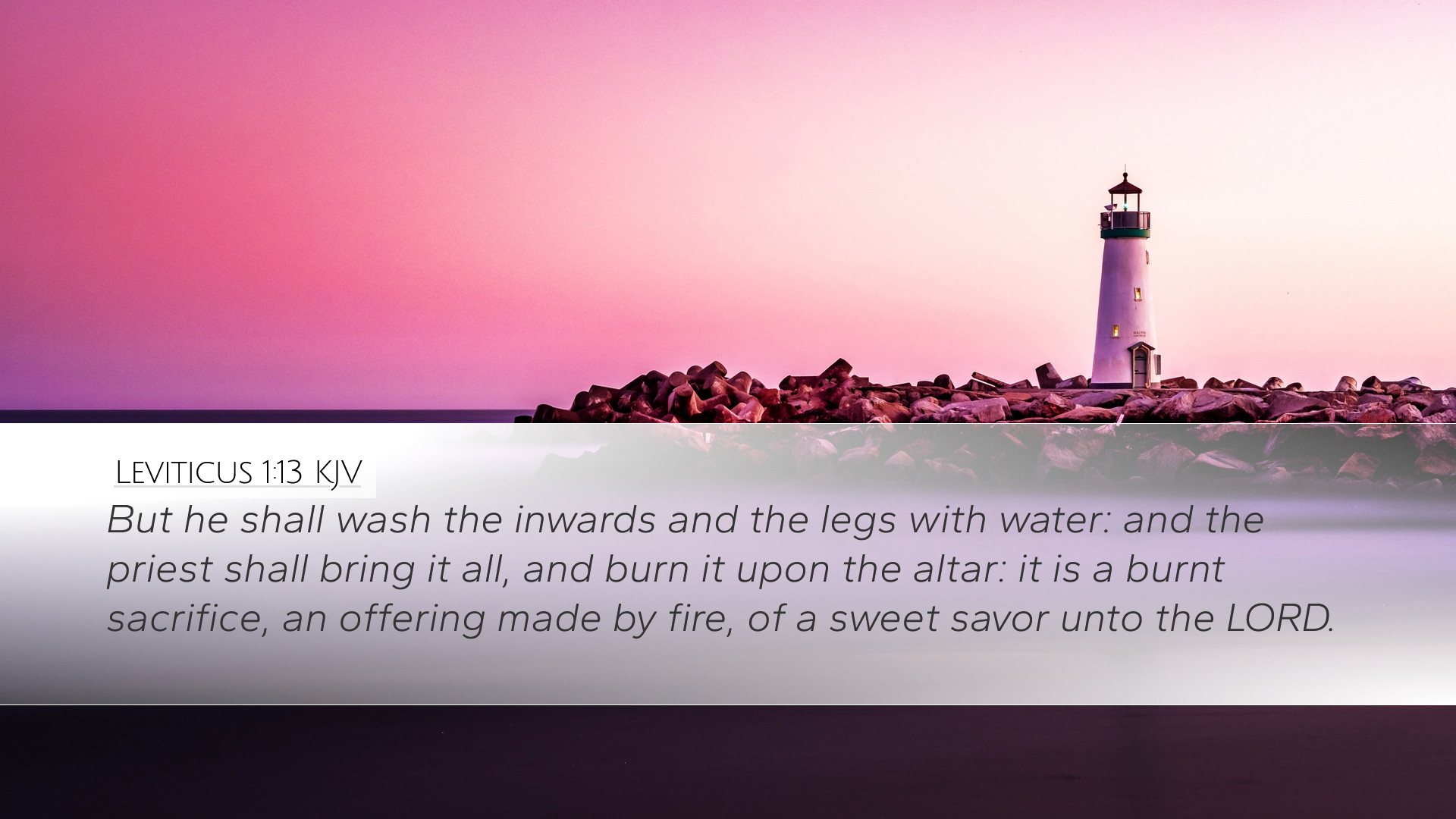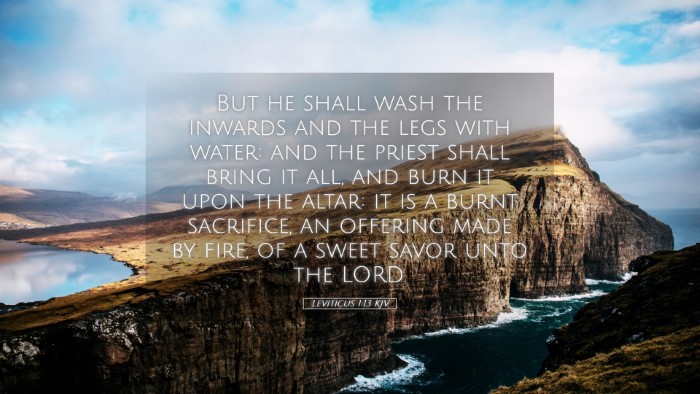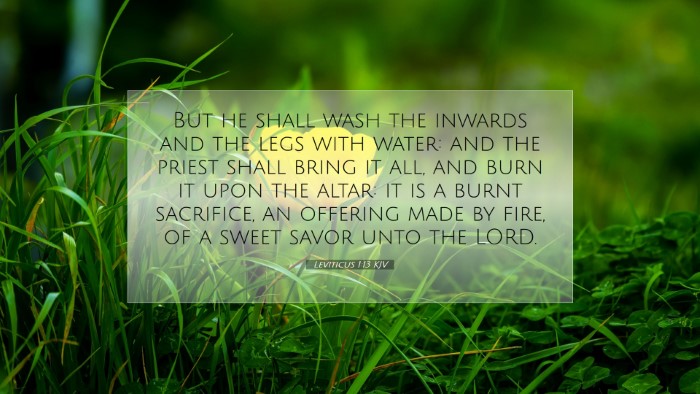Commentary on Leviticus 1:13
Leviticus 1:13 states:
"But the inwards and the legs shall he wash in water: and the priest shall burn all on the altar, to be a burnt sacrifice, an offering made by fire, of a sweet savour unto the LORD."
Overview
This verse concludes the instructions for the offering of a young bullock, detailing specific practices that the priests must perform. It highlights the importance of ceremonial purity and the significance of the burnt offering as a means of atonement and dedication to God.
Insights from Matthew Henry
Matthew Henry emphasizes the notion of holiness imbued in every aspect of the burnt offering. He notes that:
- The washing of the inwards and legs symbolizes purity and the requirement of being cleansed before being offered to God.
- Henry draws attention to the spiritual significance of the parts being washed, suggesting that thorough cleansing is necessary both physically and spiritually.
- The act of burning all on the altar signifies the total consumption of the sacrifice by fire, representing a complete offering of oneself before God.
Insights from Albert Barnes
Albert Barnes, in his commentary, provides an analytical approach to this verse, focusing on:
- The symbolic act of washing: Barnes interprets the washing of the inwards and legs as a typical representation of the cleansing needed in a life dedicated to worship.
- He emphasizes that the priest’s role is crucial, noting that it is through the priest’s actions that the offering is made acceptable to God.
- Barnes also addresses the concept of “sweet savour”, explaining that it indicates God's pleasure in the offerings presented to Him, underlining the idea of divine acceptance of the sacrifice.
Insights from Adam Clarke
Adam Clarke's exposition adds depth by examining the ritual details and their implications:
- Clarke discusses the nature of the burnt offering: It is entirely consumed by fire, symbolizing total surrender and dedicating oneself to God entirely.
- He points out that washing the inwards and legs was a preliminary step before the offering could be approved, reflecting the idea that God seeks a sincere heart and transformed life in those who worship Him.
- The cultural context is also addressed by Clarke, where he connects the practice to the surrounding nations, emphasizing that Israel's approach to worship is marked by its unique adherence to God’s law.
Theological Implications
The observance of this verse can lead us to reflect on several core themes of theology:
- Atonement: The burnt offering stands as a means of atonement for sin, signifying a vital component of reconciliation between God and humanity.
- Holiness and Cleansing: The cleansing of the offering represents God's requirement for purity in worship, mirroring the heart condition He desires in His people.
- Dedication to God: The complete burning signifies a life wholly devoted to God, urging believers to examine their own levels of commitment and submission to divine will.
Application for Today
Leviticus 1:13 serves as a rich text for application within contemporary worship practices:
- Pastors can draw from this verse to emphasize the importance of heart purity in their congregations, teaching that God looks inward before outward actions are deemed acceptable.
- The verse encourages students and scholars to explore how ancient practices of worship can inform modern understandings of sacrifice and service.
- The imagery of the burnt offering inspires a deeper commitment among believers to offer themselves as living sacrifices, aligning with Romans 12:1, where Paul urges believers to present their bodies as holy and acceptable to God.
Conclusion
Leviticus 1:13 encapsulates profound truths about sacrifice, worship, and the nature of our relationship with God. As believers seek to understand the depths of these ancient practices, they are led to a fuller grasp of God's holiness and their call to live sacrificial lives. Through insights from Matthew Henry, Albert Barnes, and Adam Clarke, a holistic understanding of the significance of this verse is attained, making it a valuable study for pastors, students, theologians, and Bible scholars alike.


